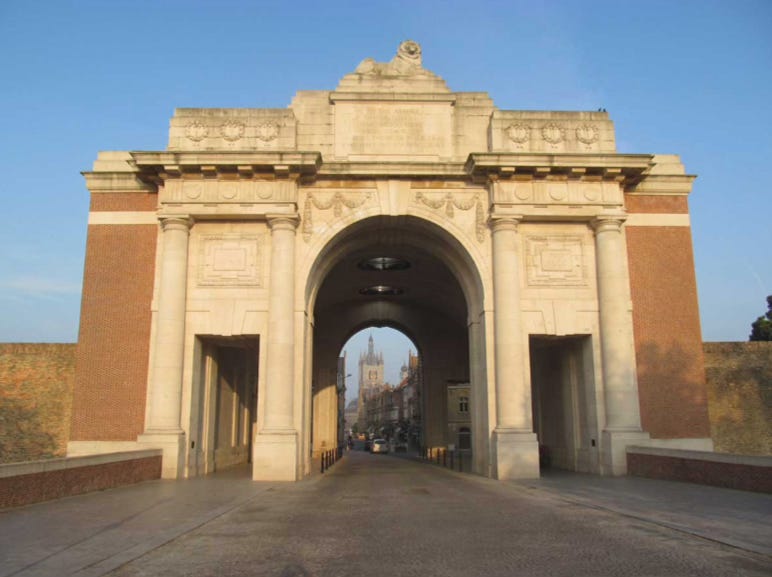War & Nationhood
Past sacrifices define new imperatives
(The Menin Gate at Ypres, Belgium)
This Remembrance Day has been moving. Canadians see the chain linking their country to those who defended it over centuries. Do they understand the imperatives and responsibilities war, nationhood and remembrance are re-imposing now?
Canada only remained an independent colony before, during and after the American revolution because Canadians defended Québec in 1775-76. Canadians defended Upper and Lower Canada, Nova Scotia, New Brunswick, Newfoundland, Prince Edward and Cape Breton Islands from attack again in the War of 1812.
We entered the First World War to defend Belgium, which declared independence in 1830. Our war record was illustrious enough to justify signing, as a dependent dominion, the 1919 Treaty of Versailles and joining the new League of Nations. By 1931, our foreign policy was independent. In 1939 we declared war on Germany, because it had invaded Poland, and later on Italy and Japan.
In a very real sense, Canada’s military contributions to two world wars — 110,000 troops on the western front in 1917-18; 45,000 troops in Italy by May 1944; a peak of 195,000 combat troops and 250,000 support and logistics forces in northern Europe by April 1945 — earned us our place in the world as an independent state.
Since then, every major Canadian military commitment has been to defend sovereign states — from Korea and Cyprus to Bosnia, Kosovo and Afghanistan.




